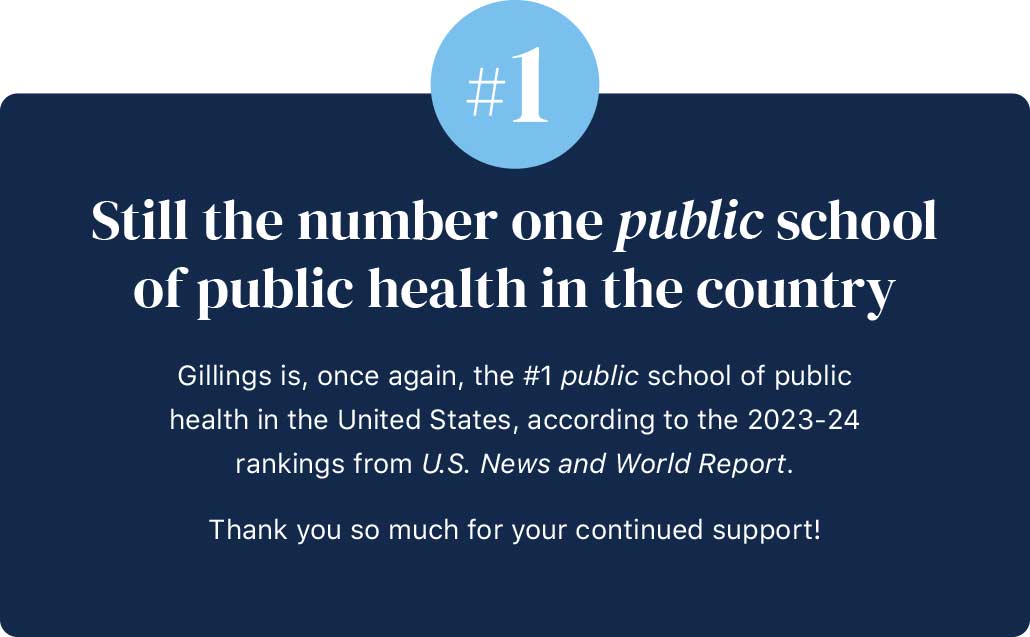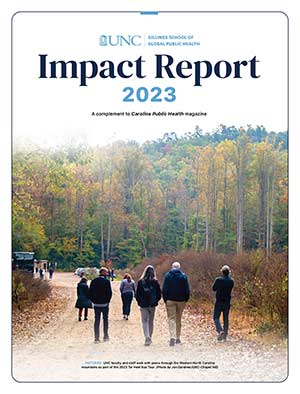Clockwise from top left: Baxter, Serrano, Black, Hardy
New faculty at the Gillings School, experts in various public health fields, are dedicated to addressing health inequities and promoting community health.
We welcome new faculty who bring a wealth of expertise in diverse areas of public health, from men’s health to maternal and child health, epidemiology, and health behavior. Each of them is committed to addressing health inequities and promoting healthier communities through their research and teaching.
Samuel Baxter, PhD, MPH
Assistant Professor of Health Policy and Management
Dr. Baxter’s research addresses men’s health, cardiovascular disease prevention, and place-based disparities. He uses community-engaged research and ecological approaches to identify and interrupt adverse psychosocial and environmental influences on health. Dr. Baxter has expertise in applying quantitative methods and community-engaged research approaches to work with racially diverse populations across various community settings.
Natalicio H. Serrano, PhD, MPH
Assistant Professor of Health Behavior
Dr. Serrano’s research focuses on creating equitable and sustainable environment and policy strategies for physical activity promotion and chronic disease prevention. He utilizes a systems approach to understand inter-related factors and sectors (such as transportation, planning and housing) impacting or being impacted by environment and policy strategies for physical activity. He is particularly interested in understanding and addressing issues related to neighborhood development, racial and economic segregation, gentrification, and displacement. Prior to joining UNC, Serrano was a postdoctoral fellow at University of Illinois Chicago’s Institute for Health Research and Policy.
Kristin Z. Black, PhD, MPH
Assistant Professor of Maternal and Child Health
Dr. Black is committed to utilizing community-based participatory research, mixed methods and racial equity approaches to understand and address inequities in reproductive health and chronic disease outcomes. Her research merges three key components. First, she explores the connections between reproductive health, maternal health and chronic diseases and whether these outcomes differ by race/ethnicity or other social identities. Second, she focuses on understanding what individual-and systems-level factors may hinder or facilitate birthing people’s journey through maternal healthcare services. Third, she is committed to transforming research into action by engaging community stakeholders in implementing and sustaining interventions that tackle health inequities and structural racism.
Shakia T. Hardy, PhD
Assistant Professor of Epidemiology
Dr. Hardy is a cardiovascular disease and social epidemiologist. Her research focuses on identifying social and behavioral determinants of hypertension and cardiovascular disease across the life course, developing interventions to increase health equity, and evaluating the effectiveness and implementation of interventions.
Hardy is currently funded by a K01 grant to develop a peer support intervention to lower blood pressure among Black adolescents. She is also co-principal investigator of the “Equity in Prevention and Progression of Hypertension by Addressing barriers to Nutrition and physical activity” (EPIPHANY) study, a cluster-randomized church-based trial testing a peer-led intervention to prevent hypertension in rural, Black adults.





